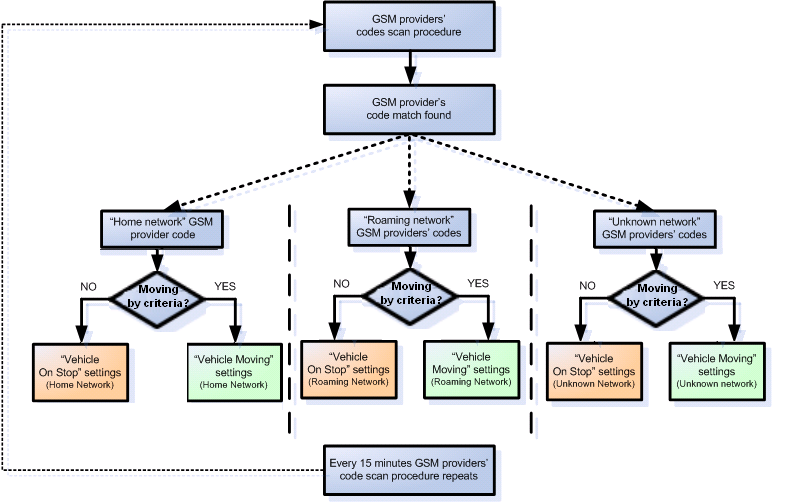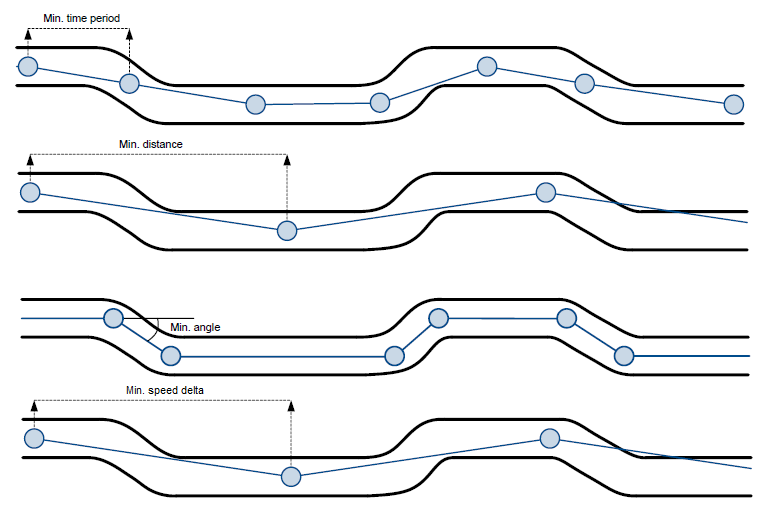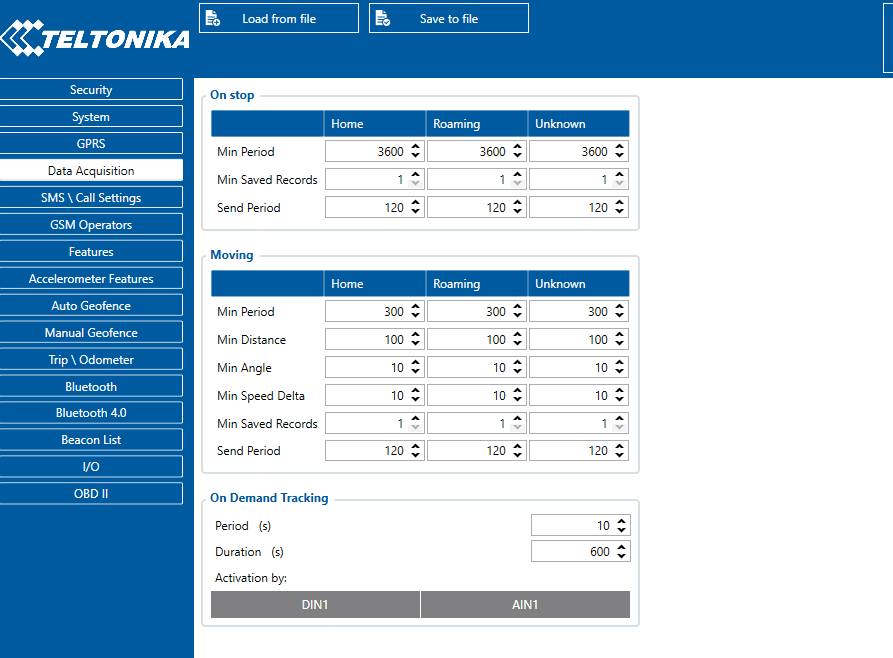MSP500 Data acquisition settings
Data Acquisition
Data Acquisition modes are an essential part of MSP500 device, they are also highly configurable.
Through configuration user defines how records will be saved and sent. There are three different modes: Home, Roaming, and Unknown. All these modes with configured data acquisition and report frequencies depend on the current GSM Operator defined in the Operator list (see section MSP500 GSM Operators settings) and are switched when GSM operator changes (e.g. vehicle passes through a country border).
If current GSM operator is defined as Home Operator, the device will work in Home Data Acquisition mode, if the current operator is defined as Roaming Operator, the device will work in Roaming Data Acquisition mode, and if the current operator code is not written in the Roaming Operator list, the device will work in Unknown mode.
This functionality allows having different AVL records to acquire and send parameter values when the object is moving or standing still. Vehicle moving or stop state is defined by the Stop Detection Source parameter. There are 4 ways for MSP500 to switch between Vehicle on Stop and Vehicle Moving modes, please refer to the first table in MSP500 System settings.
MSP500 has 6 different modes. Operational logic is shown in the figure below.
| If home operator is written to roaming operator list, it will still be detected as home operator. |

The operator search is performed every 15 minutes. Depending on the current GSM operator Home, Roaming or Unknown mode can be changed faster than every 15 minutes. This process is separate from the operator search. Movement criteria are checked every second.
Record Saving settings
Min Saved Records defines the minimum number of coordinates and I/O data that should be transferred within a single connection to the server. If MSP500 does not have enough coordinates to send to the server, it will check again after a time interval defined in Send Period field.
Send period controls the frequency of data being sent to the server over GPRS. The module makes attempts to send collected data to the server every defined period of time. If it does not have enough records (depends on the parameter Min. Saved Records described above), it tries again after the defined time interval.
| Keep in mind that MSP500 operates in GMT:0 time zone, without daylight saving. |
MSP500 is able to collect records using four methods at the same time: time, distance, angle, and speed-based data acquisition:
- Time based data acquisition (Min Period) – records are acquired every time when a defined interval of time passes. Entering zero disables data acquisition based on time.
- Distance-based data acquisition (Min Distance) – records are acquired when the distance between the previous coordinate and current position is greater than a defined parameter value. Entering zero disables data acquisition based on distance.
- Angle based data acquisition (Min Angle) – records are acquired when the angle difference between the last recorded coordinate and current position is greater than a defined value. Entering zero disables data acquisition based on the angle.
- Speed based data acquisition (Min Speed Delta) – records are acquired when the speed difference between the last recorded coordinate and current position is greater than a defined value. Entering zero disables data acquisition based on speed.


